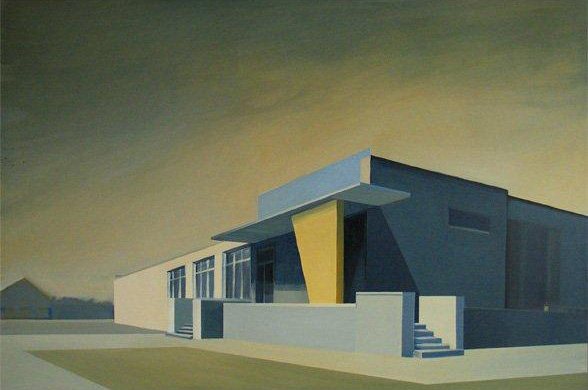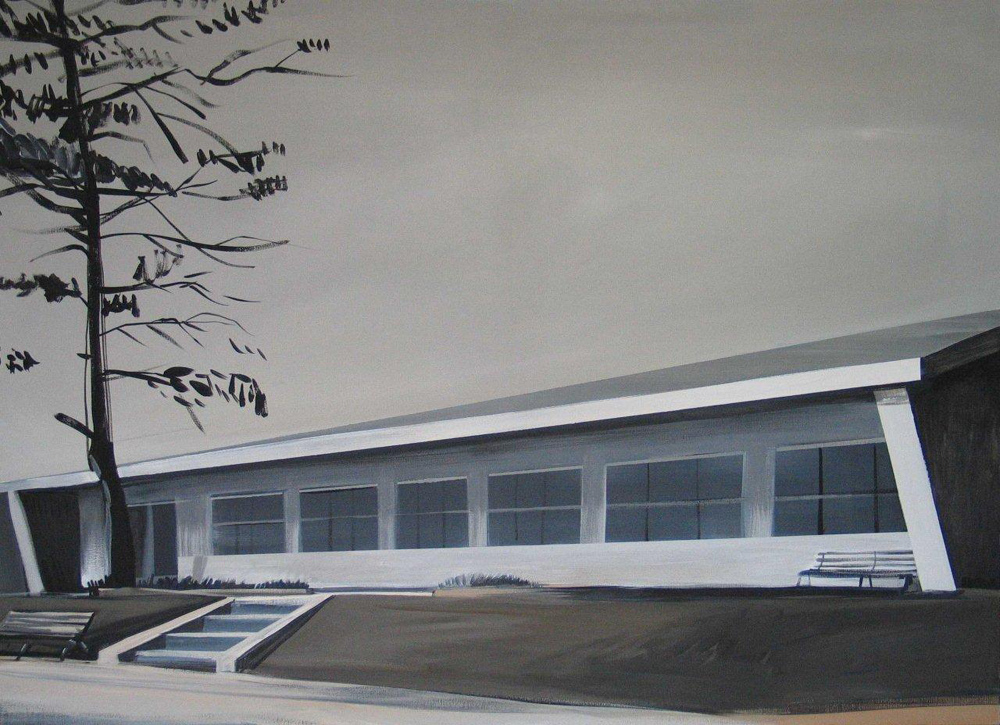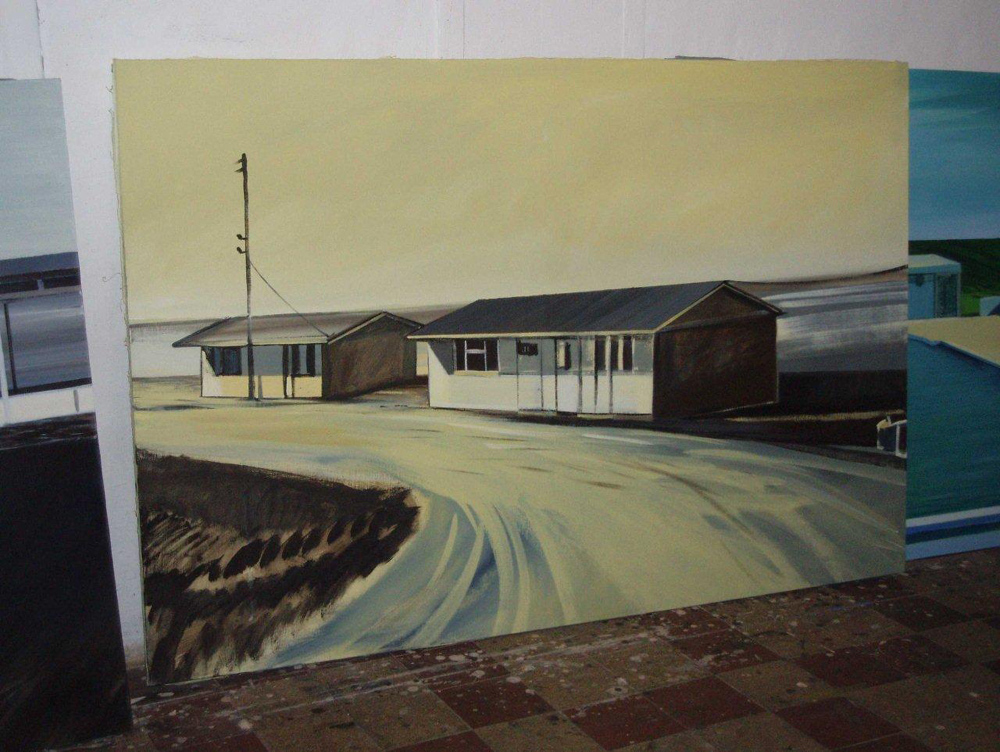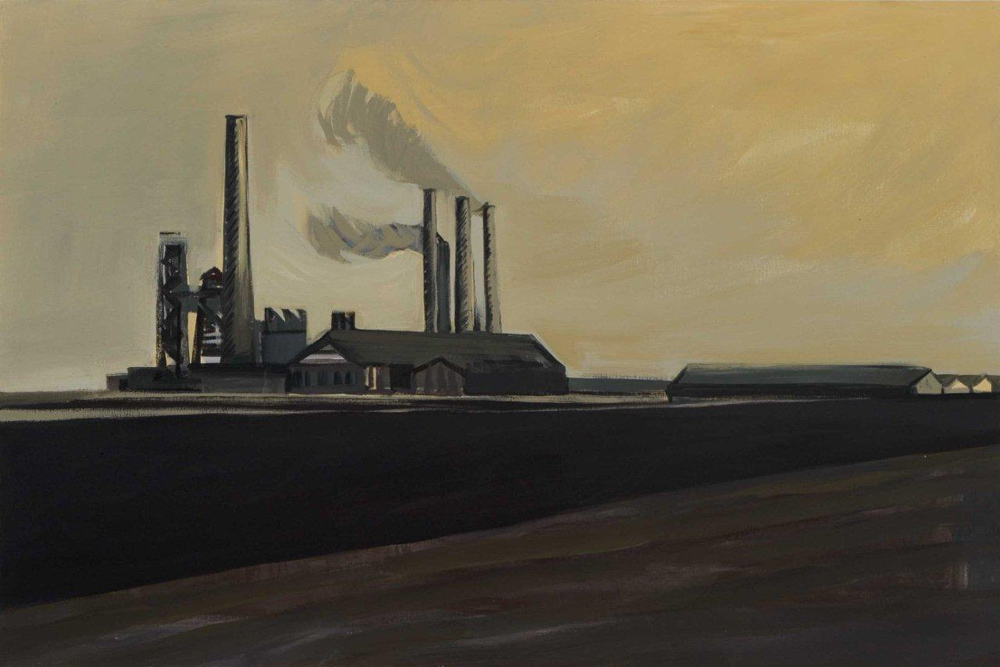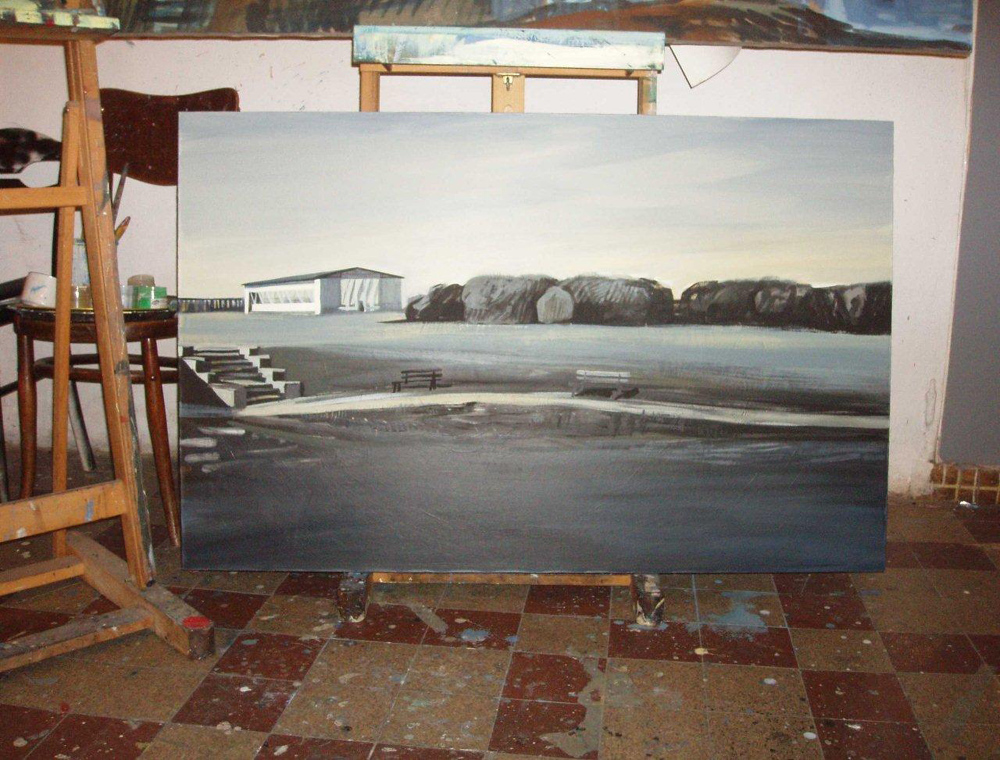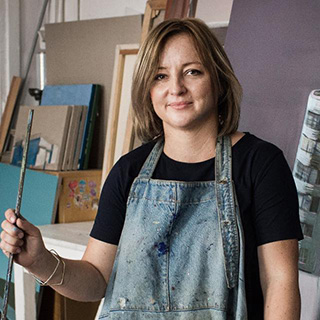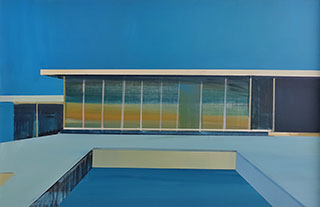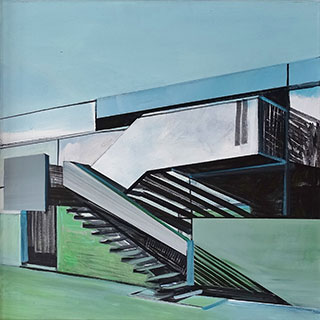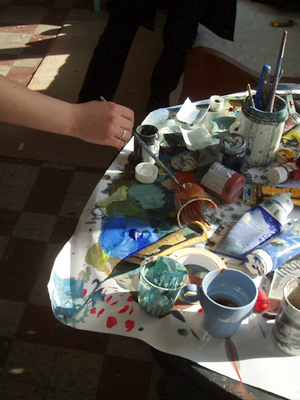The Street
We had everything that was needed on the spot. We didn’t need to go anywhere as everything was nearby: a nursery, a kindergarten, a primary school, a comprehensive, a cobbler, a laundrette, a tailor, a greengrocer, a grocer, a chemist, a community centre, video rental, a parking lot and newsagents. The only two things missing were a church and a doctor’s surgery where old women and not so young men could ‘confess’ their pains and ailments. And all these were enclosed in grey blocks which, when looked at from above, would remind one of a toy train set town. Covered with a layer of grey patina to make it look more real, spread on a faded carpet under a plastic Christmas tree, faintly smelling of larch wood – a toy town accidently found by excited kids looking for their Christmas presents. A train set town with everything included but the train set.
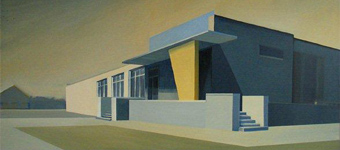
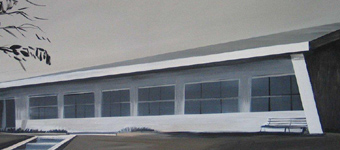
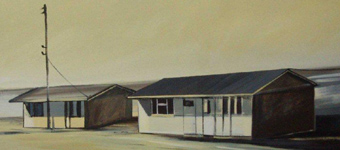
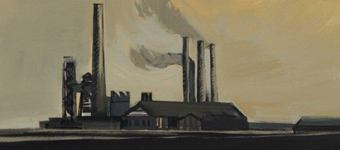
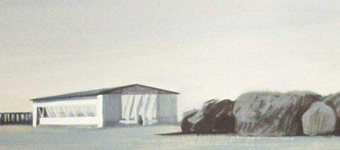
Not so skilful hand of an artist, classified as a member of the Naïve Art group for her emotional engagement and simplistic technique, has painted a tangle of radio and TV antennas on the rows of equally distributed, with a mannerism of a socrealist architect, milk cartons. Wire-net pigeon lofts scattered all over the roof, stairway entrance decorated with bluish glass blocks, windows with white net curtains and sometimes visible green pot plants or fake red flower ornaments of sacred pictures inside, square widows of sheds and laundry rooms – they all have been painted with the same lack of diligence.
The God’s shrine itself located on the neighbouring estate looked like a messy pile of egg cartons, a combination of a crib and a metal exhibition hall. However, from a perspective, the church with its crooked and bent at different angles roof might have looked like an avant-garde architectural design with an old-fashioned ideology. It was stuck there amongst heaps, closed airport, remains of the never completed construction sites and piles of concrete blocks with metal spikes, like a cheap cliché in a well structured methodical counsel.
A concentration of those sad gray blocks of flats, euphemistically called estates, was self contained. Officially it was under the authority of the crooked local council and was supervised by rather old ever-present busybodies called ‘the activists’ or the ‘social workers’ – they were in charge of keeping order, e.g. getting the kids off grass.
This self contained unit was designed in such way that it could resolve all its physiological matters on the spot. In practice, it meant that when the glorious day at the end of a month -the payday - arrived the local bushes, trees, hills and grass were populated by half erected, crumpled characters, who either were nudging each other, or singing or walking towards the neighbouring estate to resolve some dormant disputes between the local clans.
Alas, boys were fighting with boys, pulling each other’s jackets, shooting from sling shots and blowpipes, lighting up crackers, throwing water bombs, sulphur-nitre bombs and kicking each other’s arses. Because everyone was against everyone: estates versus estates, blocks vs. blocks, floors vs. floors. And the red cheeked girls stood there goading: ‘Kill him! Kill him! Do something! Don’t be a wimp! Show him what you are made of! Show him you’re a red blooded male not a city pussy!’ Alas, just a stone throw away the mobile units of military police, devoted to People’s Republic, were bashing the opposition with truncheons. Then everything was black and white or white and red, and just the blocks of flats stood there in different shades of gray caused by the factory dust sneaking in there at night. At night, when everyone was asleep, it would emit the worst, the most poisonous gases.
Alas, this is where we would live, where we would shout and burn tyres. This is where we would die, without a complaint, from a weltschmertz – a sentimental pessimism woken up by the overdose of cheap booze. That was a different era and one didn’t need to pursue things, go places or look for God knows what. What for? Where? Everything one needed was on the spot, on that street soaked in a black sun. All one needed to do was to confess their sins twice a year and take a Holy Communion at Easter – there, simple rules, everyday issues. Not like nowadays when the world’s upside down ruled by a phallus.


